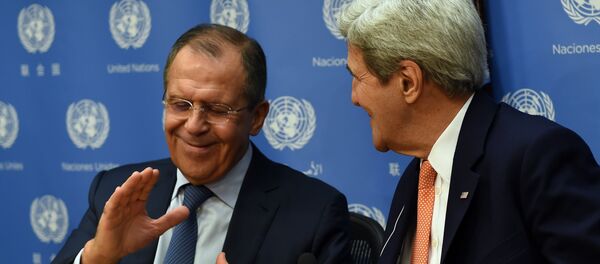30 countries, 6 sub-indices, 1 Number One spot. The #SoftPower 30 Index is now live https://t.co/v5KGd6VqB6 pic.twitter.com/iepPJsjpbI
— Portland (@PortlandComms) June 14, 2016
One of the more surprising rankings for western powers is the entrance of Russia into the top 30, after failing to make the cut in the 2015 rankings. Speaking to Sputnik News on Tuesday (14th June), Jonathan McClory, author of the report for Portland Communications, pointed to the global nature of the research used to form the rankings:
"It's important to note that the Soft Power 30 represents a global view of soft power, not just the western view that often harbors less positive perceptions towards Russia. Russia's accession to the list comes off the back of a couple of key international developments in the past year, namely a quieter period in Ukraine, as well as Russia's success in casting itself as a leader in the fight against Islamic State," McClory told Sputnik.
The methodology of the index uses 76 metrics within 7 categories: Digital, Culture, Enterprise, Engagement, Education, and Government.
#SoftPower 30 author @JonathanMcClory sees 'digital first' as the new foreign policy reality pic.twitter.com/WLqtUypYlP
— Portland (@PortlandComms) June 14, 2016
The index said that Russia drew 29 million tourists annually, with Russian culture being "widely appreciated and studied," and highlighted the impact of the growth of RT globally. It was in the "Engagement" section, however, that Russia achieved its highest ranking.
"The metrics in our Engagement sub-index aim to measure the reach of states' diplomatic networks and their commitment to major challenges like development and the environment. Russia's solid performance in Engagement reflects the number of embassies it hosts and has abroad, as well as its relatively high number of diplomatic cultural missions," Mr McClory told Sputnik News.
The concept of soft power was developed by Joseph Nye of Harvard University to describe a country or government's ability to shape policy or preference through attraction, appeal and co-operation — as opposed to coercion through force or capital (hard power).
McClory explained the importance of soft power globally: "Soft power is an incredibly important asset, especially as countries seek to achieve their foreign policy goals in an increasingly connected and digital world. Countries need to rely on their ability to collaborate and build relationships — instead of on the traditional hard power approach of military might and coercion — to persuade other states rather than compel."
The top of the table has seen a slight readjustment, with the United States of America moving from 3rd to 1st, pushing the United Kingdom into 2nd place and Germany down to 3rd.
Though the report itself hints towards potential changes in the rankings in future as the result of presumptive Republican Presidential Nominee Donald Trump's threats to "tear up long-held, bi-partisan principles of American foreign policy."


